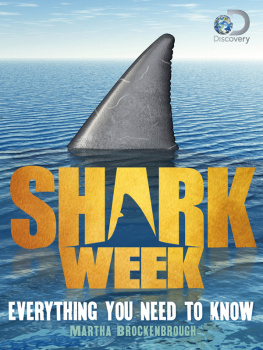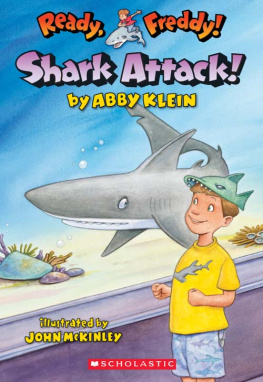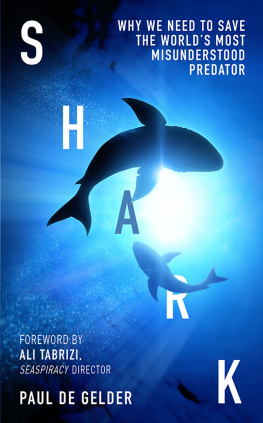Contents
Guide
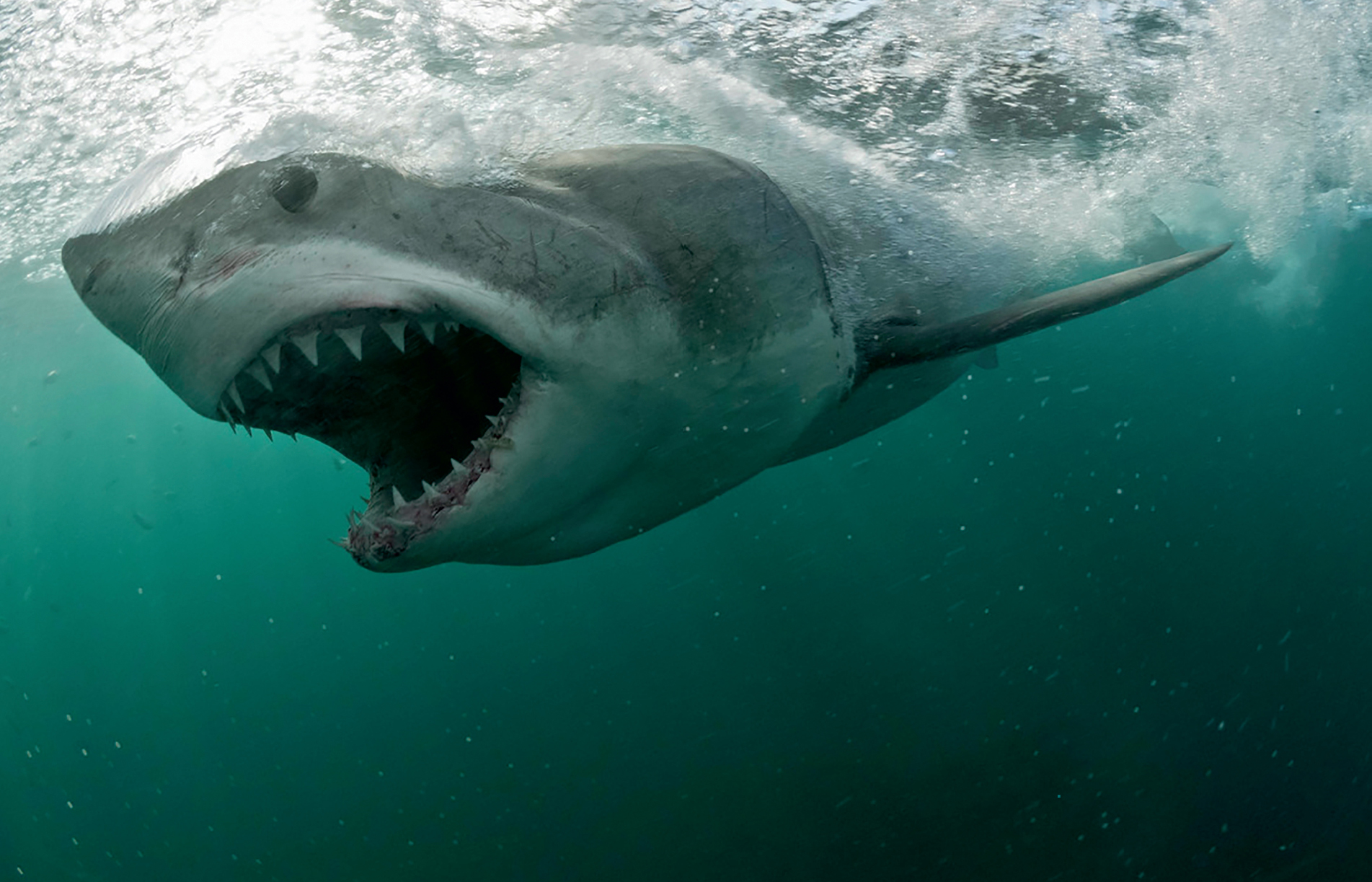
EVERYTHING YOU NEED TO KNOW
SHARK WEEK
BY MARTHA BROCKENBROUGH
FEIWEL AND FRIENDS NEW YORK
The author and publisher have provided this e-book to you for your personal use only. You may not make this e-book publicly available in any way. Copyright infringement is against the law. If you believe the copy of this e-book you are reading infringes on the authors copyright, please notify the publisher at: http://us.macmillanusa.com/piracy.
You might already love sharks. Maybe youre one of the 45 million people who watched Shark Week programming on Discovery. If you had your way, youd make every week shark week. We know just how you feel.
But its also possible that sharks scare youat least a bit. And thats okay, too. As predators go, few are more powerful or better adapted to take down prey.
The truth is, sharks might be the most misunderstood animals on the planet. Maybe its because weve watched Jaws or other scary shark movies. Maybe its because weve read news stories about attacks on swimmers and surfers. Or maybe because weve so often heard them described as glassy-eyed, mindless eating machines that like nothing more than the taste of human flesh. Whatever the reason, we fear these animals more than we should.

Theres a word for this excessive fear of sharks: galeophobia. Its made of two Greek words: phobos, which means fear, and galeos, which is a kind of shark with weasel-like markings. A kind of funny thing about this word: galeophobia is also used for fear of polecats, weasels, and skunksall animals with the contrasting dark-and-light coloring found on many sharks.
Whatever the reason for your galeophobia, you can in all likelihood let it go. Youre a whole lot more likely to win the lottery than you are to be bitten by a sharkand youre almost certainly not going to win the lottery. (Sorry.)
If you want to fear an animal, fear the mosquito. The World Health Organization says this tiny bloodsucker kills more than 1 million people a year by transmitting malaria through its bites. No other animal kills as many humansor comes even closeexcept other people.
Lightning strikes are vastly deadlier than sharks, and we know how rare those are. Best estimates put their death toll at as many as 24,000 people per year.
Meanwhile, whats cuter than a white-tailed deer? Not much. And yet these adorable forest dwellers kill around 130 people a yearway more than sharks do. Granted, its when peoples cars hit the deer, which is usually at least as hard on the deer as it is on the humans. But still, as these things go, Bambi is far more of a statistical menace. If you want to spend any of your worry points on death by animal, you should fear the deer more than you fear the shark.
Here are the facts: hardly anyone dies in shark attacks, and most people who sustain bites survive. In the past decade an average of about six people around the world have been killed each year by sharks, according to the International Shark Attack File, which began in 1958 and has tracked more than 3,400 incidents since the mid-1500s to the present day. Of people bitten by sharks each year, mostaround 65survive.
Shark attacks are bad, of course. But they are rare enough that you shouldnt spend any time at all worrying about them. If you know sharks are in the water, dont go swimming. If you see them, dont provoke or feed them. Youd be surprised how many people do that. Well get to that in .
The bottom line is, sharks are a creature to cheer, not fear. Theyre remarkable in so many ways. Here are just a few:
They have flexible cartilage instead of bones.
There are more than 500 species of shark.
Their teeth continuously replace themselves.
Their giant livers help them float.
They can sense electric fields given off by animals, objects, and water moving through the earths magnetic field.
They evolved 200 million years before dinosaurs. Theyre older than insects, amphibians, reptileseven older than seeds and flowers. (Human beings are a lot younger, only about 200,000 years old as a species.)
Whatever you want to know about sharks, chances are you can find out in this book, which is named for the wildly popular Discovery show.
We cover everything from how, when, and where they attack to the specialization of their anatomy that makes them such fierce and wonderful hunters.
We talk about how and where they are born, live, and die. And even who their biggest enemies are. You might just be surprised to find out what kills as many as 200 million sharks every yearand why.
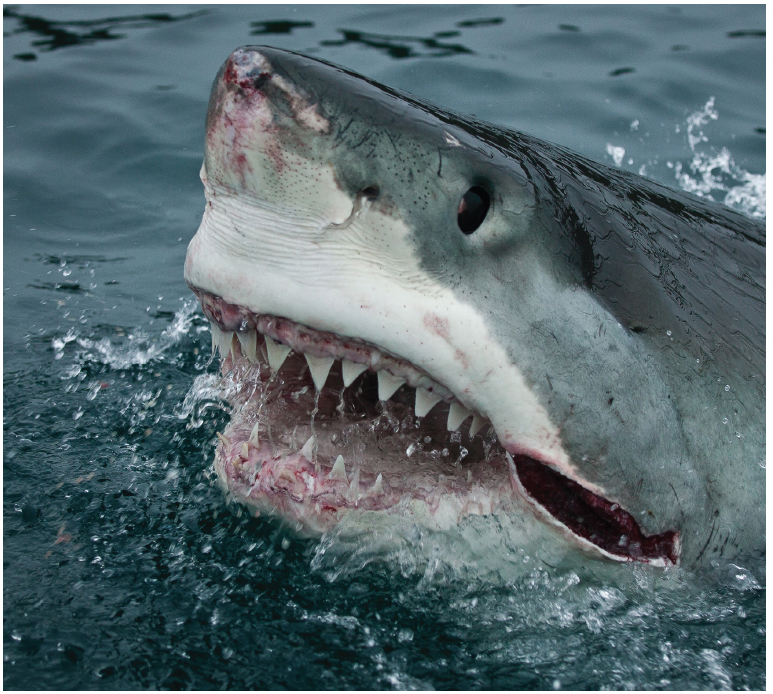
We dive deep into the anatomies and oddities of some of the most fantastic of all sharkseven extinct ones.
We pit them in imaginary battles against some of your other favorite predators. Sharks are fearsome, yes. They are some of the worlds most efficient and skilled hunters. But there are also many reasons to love themand turn your galeophobia to galeomania.

THE INS AND OUTS OF
A SHARKS WORLD
HOW LONG SHARKS HAVE LIVED
By any measure, sharks are magnificent animals. Theyre older than dinosaurs. They can grow larger than elephants. Theyre powerful huntersthe biggest, strongest, and fastest fish in the sea. The more you know about these creatures, the more you will admire them.
A few facts to start with:
THEYRE AN ANCIENT CREATURE. The earliest-known shark fossils are more than 400 million years old. The oldest-known dinosaur fossil is 240 million years old. The shark is a survivor, evolved to inhabit every ocean of the world. Sharks have outlasted dinosaurs and giant mammals and, with care from humanity, might continue to thrive.

THEYRE DIVERSE. The tiniest are a few inches long. The biggest can grow up to 45 feet.
THEY CAN LIVE LONG LIVES. Some can live a centurysharks alive today might have been around, for example, when the Titanic sank.
THEY HAVE SENSES THAT HUMANS DONT. Think about how much information you glean from your senses. Touch. Taste. Hearing. Smell. Sight. Sharks can do all of that (and in many cases better than we can). Plus, they can sense vibrations in the water and the electricity generated by living things.

SHARK EVOLUTION
Sharks have had the same basic body shape and structure for hundreds of millions of years: a head, a body, a tail, gills, and fins. This doesnt mean sharks havent changed over time; they have, and some species have evolved in spectacular ways. And the idea that sharks are living fossils is being modified the more we know about them. Some sharks are similar to extinct ones. But many modern sharks have more advanced gills than extinct sharks, according to a team of researchers led by the American Museum of Natural History.

